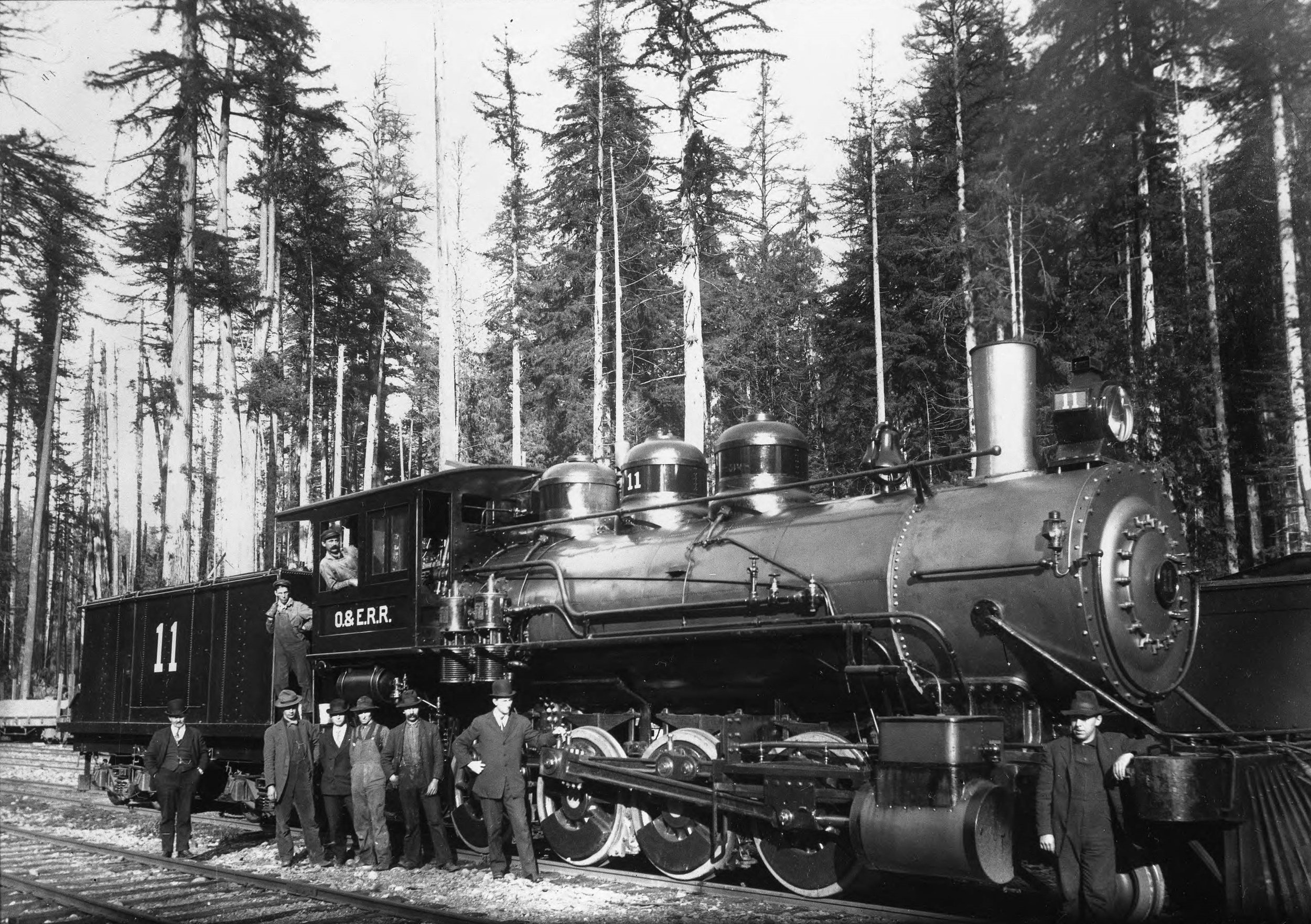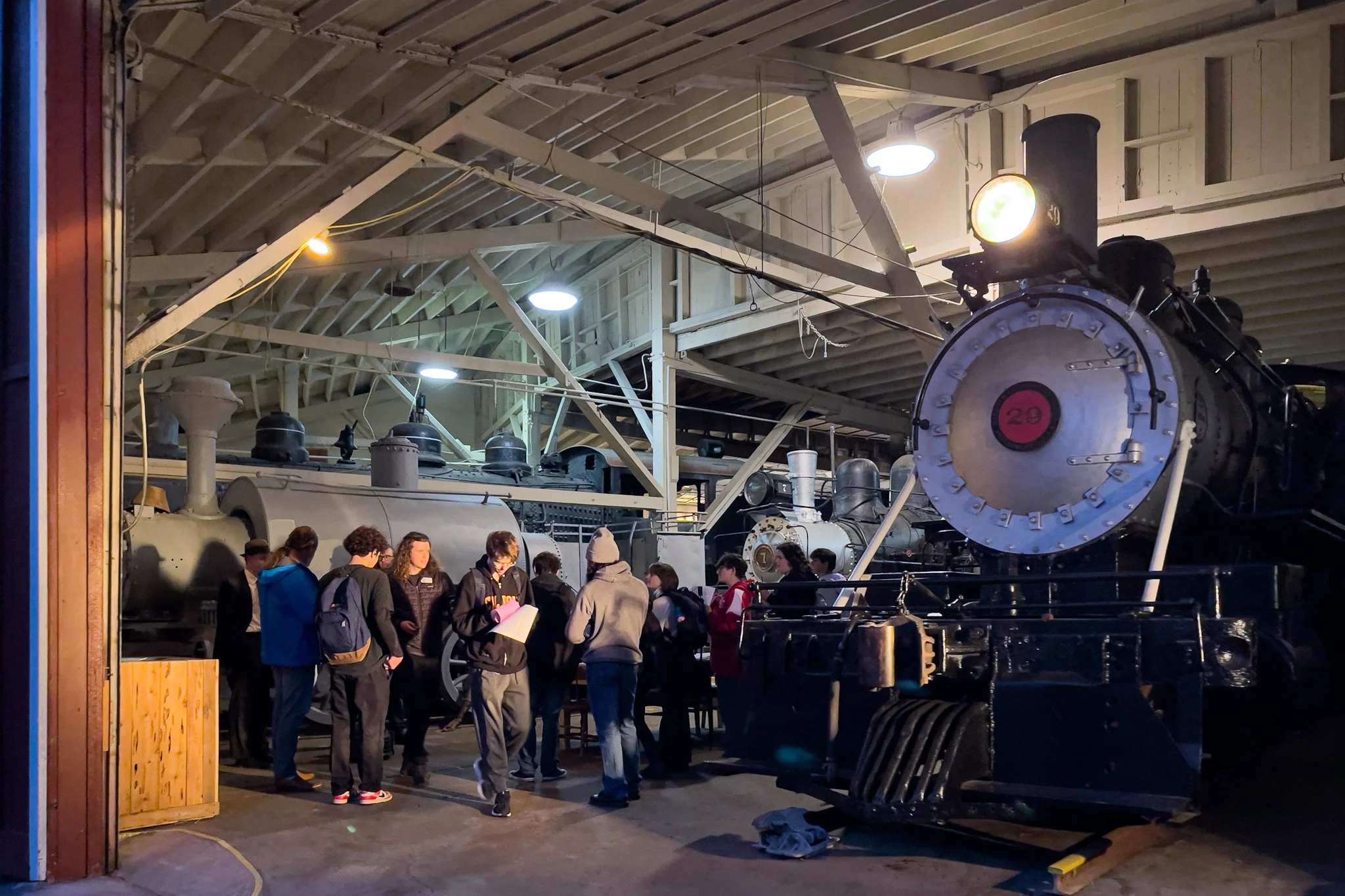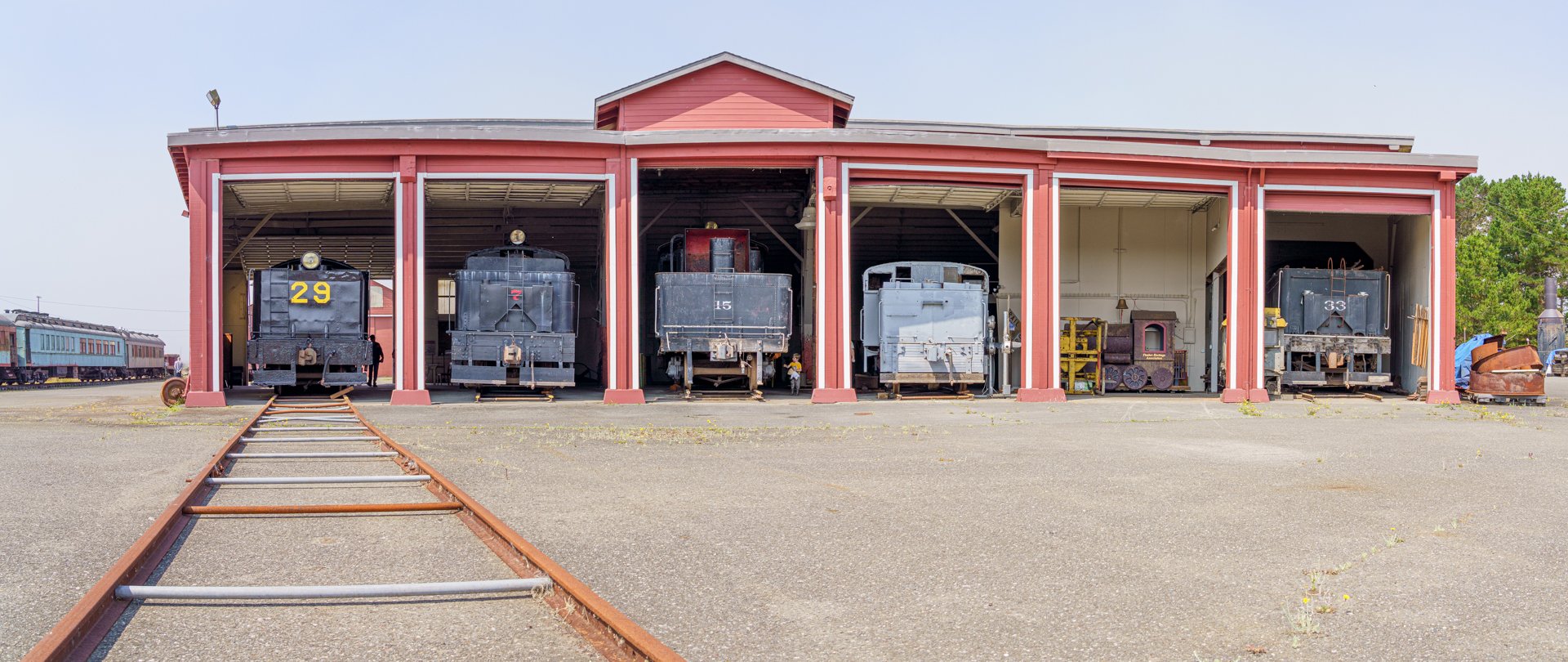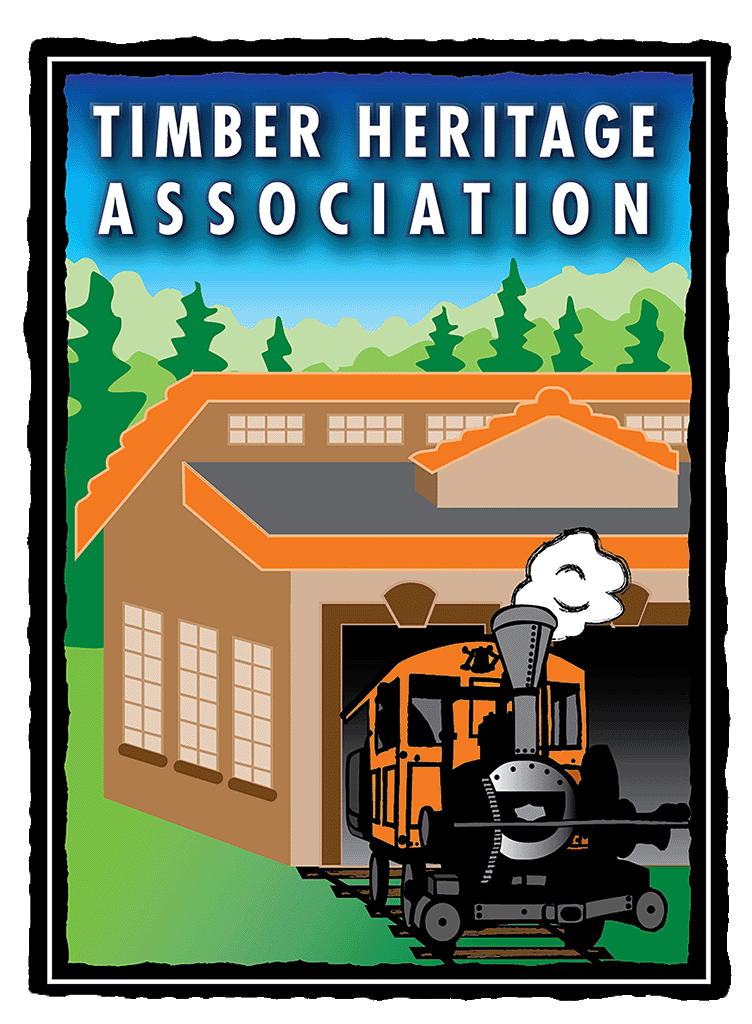
Built by the John Vance Mill and Lumber Company, 1893
Samoa Roundhouse & Shops

The John Vance Mill and Lumber Company decided to purchase 270 acres in West Eureka, known today as Samoa. In December, 1893, they incorporated the Eureka & Klamath River Railroad Co. to run from Eureka (by ferry) to Samoa, then by rail to Arcata, cross the Mad River and continue upstream to Vance’s timber.
The new Samoa mill produced its first lumber in 1894. The modern sawmill produced 60,000 to 70,000 board feet a day. The railroad was extended from the north Humboldt Bay terminus to Samoa in 1896. Between 1893 and 1896 the company built the sawmill, the railroad, depots at Eureka, Samoa and Arcata, a car shop, a roundhouse and a cookhouse. A.B. Hammond purchased the John Vance Mill and Lumber Co. and the Eureka & Klamath River Railroad for $1,000,000 on September 1, 1900. He continued buying timber land, expanding the production facilities and size of the operation for 56 years. Hammond Lumber Company became the largest redwood lumber mill in the world.

The 6-stall roundhouse and shop complex (including a machine shop, blacksmith shop, boiler shop, tin shop and car shop), not only maintained and repaired railroad equipment, but they also repaired and built equipment for the woods operations, the sawmills, the planing mill and even made major repairs on company-owned steamships. In the 1940s it was as large or larger than any other California lumber company shop complex. The Samoa Shops facility was large enough and well equipped enough to build an entire 112-ton 2-8-0 in 1910. It was too large for the roundhouse entrance, so one of the center bays had to be heightened to accommodate the locomotive. The addition is still obvious today.

Georgia-Pacific Corporation purchased the Samoa sawmill complex in 1956 and began operation of a plywood mill in 1958. A modern sawmill soon replaced the original facilities in 1964. A pulp mill began operation nearby in 1965. Some of the older worker housing was razed during construction of modern mill facilities.
Georgia Pacific shifted all log hauls to trucks in 1961, bringing the logging railroad era to a close. The tracks were removed, and the Roundhouse was converted to a truck shop - serving the next generation of heavy haulers. The Samoa shop complex was transferred to the Louisiana-Pacific Corporation during a Federal Trade Commission action initiated in 1972. The last old-growth timber was milled in 1980.

Although the tracks are gone, the roundhouse is little changed from its original configuration. The upper clerestory windows have been boarded over, other windows have been replaced with modern versions but in the same openings; doors, which were unnecessary in steam days since someone had to be around to keep the locomotives warm all night, have been added. The other buildings are also intact with similar modifications.
The Samoa Shops complex and roundhouse sits just below the Samoa Cookhouse. Workers ate here every morning and then walked down a wooden stairway to their shop and mill jobs. Now a restaurant, the cookhouse, prior to 2023, had been in continuous operation since 1893. Its appearance and food are much the same as it has always been. Historic photos and antique equipment surround those who eat there to emphasize the experience. Next door to the cookhouse is the fantastic Humboldt Bay Maritime Museum.
Adjacent to the Cookhouse is the original company town with the original homes and a mercantile, business and office building called the “Samoa Block.” The town is owned by the Danco Group today but for over one hundred years it was a private lumber company town - one of two remaining in Northwestern California.











Donate
As a 501c3 nonprofit public benefit institution, the Timber Heritage Association relies on charitable contributions to preserve, restore, and operate our collection of historic artifacts, buildings, and railway vehicles.
Volunteer
Would you like to work on locomotives, railcars, or similar equipment? Handy with a hammer? Good with a camera? Savvy with a torch? Is marketing and special events your thing? Timber Heritage Association is an all volunteer organization, and there are positions for all levels of skill and experience within the organization. We would love to have your help.



